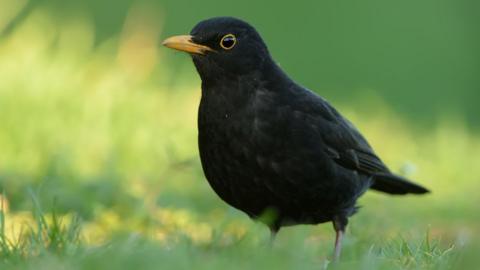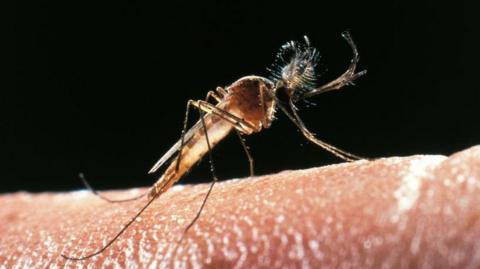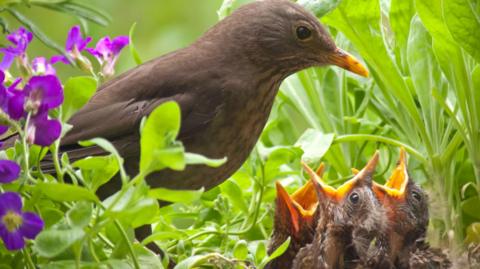Scientists at the APHA in Weybridge, Surrey, have been tracking mosquito-borne diseases in wild birds for decades, amid warnings that climate change is turning Europe into a potential breeding ground for the insects.
Longer summers, hotter temperatures and heavy rainfall are creating conditions for the nuisance insects to move into areas that were previously inhospitable to them.
Until 2020, all results came back clear. Then, after the summer heatwave of that year, Usutu was detected in several blackbirds in Greater London.
"Blackbirds specifically are quite susceptible to the virus and since 2020 we've found a decline in blackbirds of approximately 40% in Greater London," said Dr Folly.
"It gives an indication that in the future we might get other viruses that are transmitted by mosquitoes emerging in the UK."
Diseases such as Usutu are a growing threat to wild birds, amid a host of other pressures, including habitat loss, climate change and pesticide use.


